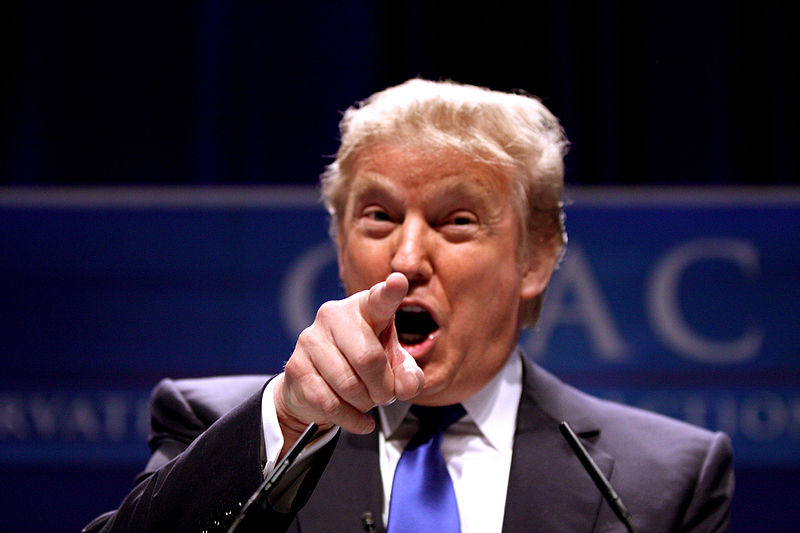Doomsday, meet Election Day.
Mayor de Blasio said on Tuesday that the election of Joe Biden as president in November would break the logjam caused by the Trump administration's inaction on congestion pricing — which MTA officials say has caused a delay of at least one year in implementing the central business district tolling that will reduce congestion and raise $1 billion a year for the cash-strapped regional transit agency.
"There is an election in four months," said the mayor, who has made no secret which candidate he favors. "So things could change very soon in terms of the federal government's views on congestion pricing and the federal government's willingness to help New York City."
Hizzoner's comments came as he was questioned by several reporters about the MTA's announcement that congestion pricing was hopelessly stalled, and to provide some evidence that he is planning ahead for the anticipated influx of car commuters in a viral era when public trust in transit is reduced.
The mayor revealed that he has no plan, but that he is willing "to look at all sorts of alternatives," including HOV lanes, as a possible stopgap measure. Such carpool lanes were used by the city after the September 11 terrorist attacks, and during a three-day transit strike in 2005.
The mayor also fairly quickly dismissed the need for those HOV lanes, saying he still does not believe that a carpocalypse is coming.
"We are seeing more of an increase in transit ridership than we are seeing cars coming in to Manhattan using the East River bridges and the Harlem River bridges," he said.
On the larger issue of the politics behind congestion pricing, the mayor admitted he is ill-informed.
"I want to get the full facts on why they [Trump Department of Transportation officials] are doing what they are doing," he said. "I want congestion pricing to move forward as fast as possible. I will have more to say after I get more information on the current state of play."
The state of play is this: Since January, the federal Department of Transportation has been in receipt of all documents it has requested from state officials in order to determine what level of environmental review will be required before it signs off on congestion pricing (which requires federal approval because at one point, the federal government funded some of the roads involved).
The feds can demand a full-blown environmental impact statement, which can take years to complete; or a slightly easier environmental impact assessment, which also takes years (but fewer of them). The federal government can also grant New York State a categorical exclusion, meaning that no assessment or impact statement would be required because congestion pricing — which all models show would reduce the use of cars and, therefore, reduce area pollution — would not have a negative environmental impact.
Hence the mayor's hope that Biden gets elected.
The MTA is not allowed to get the jump on either the environmental impact statement, because no work can be done until the federal government files a formal Notice of Intent in the Federal Register. And the state can't work on either document behind the scenes, either, because it doesn't know what information the federal government will mandate in the notice of intent.
"The MTA will need to address what the feds want to see addressed, such as traffic studies, congestion mitigation studies, conformity determination models, etc." said Lisa Daglian, the executive director of the Permanent Citizens Advisory Committee to the MTA. "So say the MTA has everything it thinks it needs, and the feds say, 'Not so fast — you did X but we want Y,' now the MTA has wasted time and money and still has to jump through whatever hoops the feds determine."
And those hoops apparently are many.
A spokesperson for the Federal Highway Administration declined to comment on the MTA's assertion that the feds — and New York-hating President Trump, specifically — are intentionally slow-walking congestion pricing, saying only that the proposal is still under review by the Federal Highway Administration.
"Given that this project would set precedent as the first 'cordon' congestion pricing toll zone in the United States, it requires thorough consideration and review," the spokesperson said.
It's a review that the MTA says it is dying to begin (the organization's motives are not entirely altruistic; the agency needs the $15 billion in bonding potential that congestion pricing can create or, advocates say, the city is facing a doomsday scenario).
“We’ve literally hired the consultants. We’ve designed the systems and the cameras and so on that are going to be implemented, but we just can’t move forward without the Trump Administration’s action,” MTA Chief Development Officer Janno Lieber told reporters on Monday. “It is so frustrating.”
And on Tuesday, MTA CEO Pat Foye ramped up the rhetoric, accusing the Trump administration of being "cynical" for holding up congestion pricing over an environmental impact statement when, in fact, central business district tolling will be good for the environment.






